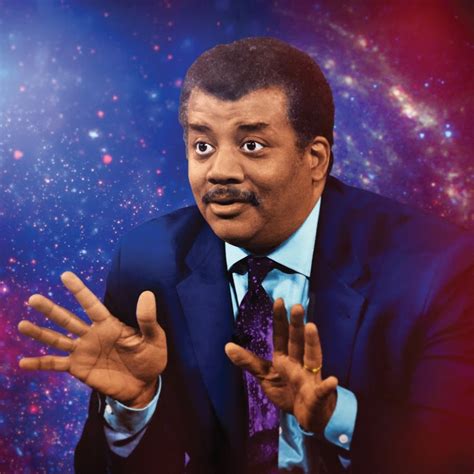 There are a number of ways to improve your communication skills so that you can make an effective argument.
There are a number of ways to improve your communication skills so that you can make an effective argument. From public speaking to face-to-face conversations, here are some tips from world-class astrophysicist Neil deGrasse Tyson to help you become a good debater:
 Generate curiosity. One of the things you need to know as a science communicator—or any communicator—is how to generate curiosity in your audience. Sometimes this means giving your audience less instead of more. Take the shape of the Earth, for example, which Neil can describe with varying degrees of nuance and specificity. How he describes it, though, is dictated by the audience to whom he is speaking. “In a first pass, the shape of the Earth is a sphere,” he says. “Do you want to know more? Okay. Earth is not actually a perfect sphere—it’s slightly flattened pole to pole, a little wider at the equator. We have a word for this in mathematics. It’s called an oblate spheroid.” So you need to ask yourself: What is the interest level of my audience, and what topics matter most in my conversation with them? On the other hand, if your audience contains specialists or people who are well educated on the subject, give them more. “Being as effective as you possibly can doesn’t mean telling someone everything you could possibly know about something.
Generate curiosity. One of the things you need to know as a science communicator—or any communicator—is how to generate curiosity in your audience. Sometimes this means giving your audience less instead of more. Take the shape of the Earth, for example, which Neil can describe with varying degrees of nuance and specificity. How he describes it, though, is dictated by the audience to whom he is speaking. “In a first pass, the shape of the Earth is a sphere,” he says. “Do you want to know more? Okay. Earth is not actually a perfect sphere—it’s slightly flattened pole to pole, a little wider at the equator. We have a word for this in mathematics. It’s called an oblate spheroid.” So you need to ask yourself: What is the interest level of my audience, and what topics matter most in my conversation with them? On the other hand, if your audience contains specialists or people who are well educated on the subject, give them more. “Being as effective as you possibly can doesn’t mean telling someone everything you could possibly know about something.
 Know your audience. Neil speaks to a wide range of crowds: from the rap-savvy viewership that follows the television show Desus & Mero to military audiences driven by a sense of mission. He never approaches one audience the same way as another. To communicate effectively, you need to know your audience. Real communication comes partly from being able to read the room. Are the people you’re addressing engaged with what you’re saying? Drifting off? What’s their body language and eye contact like? How are they reacting to the content? Paying attention to these things will give you a better shot at getting there. Neil also has audience-specific pointers to think about their point of view. If you’re speaking to children, your vocabulary and syntax needs to be simpler, and you’d be smart to brush up on recent family-friendly movies or music that can act as reference points. Senior audiences are typically easier to reach: They respond well to references from the past, especially to time periods they’ve lived through (a war, for instance). Adding historical context will help your subject feel connected to you. For hipper audiences, try leaning heavily on pop culture references.
Know your audience. Neil speaks to a wide range of crowds: from the rap-savvy viewership that follows the television show Desus & Mero to military audiences driven by a sense of mission. He never approaches one audience the same way as another. To communicate effectively, you need to know your audience. Real communication comes partly from being able to read the room. Are the people you’re addressing engaged with what you’re saying? Drifting off? What’s their body language and eye contact like? How are they reacting to the content? Paying attention to these things will give you a better shot at getting there. Neil also has audience-specific pointers to think about their point of view. If you’re speaking to children, your vocabulary and syntax needs to be simpler, and you’d be smart to brush up on recent family-friendly movies or music that can act as reference points. Senior audiences are typically easier to reach: They respond well to references from the past, especially to time periods they’ve lived through (a war, for instance). Adding historical context will help your subject feel connected to you. For hipper audiences, try leaning heavily on pop culture references.
- Be vibrant. Docum
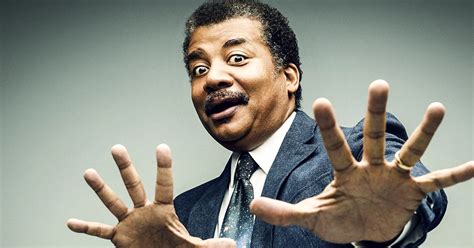 entaries typically book on-screen experts—otherwise known as “talking heads”—to share their erudition on a subject. But their ability to communicate is not always equal to their expertise: often they don’t understand techniques that help get complicated ideas across. Emotion and humanity—smiling, expressing sadness, using hands or eyebrows or body language or facial expressions—help frame the words you use. They’re as critical as language when it comes to communication. Here are a few of Neil’s tips for transmitting information: Move around rather than standing behind a podium, develop a sense of physicality and body awareness to use on stage as a communicator, and add a little vocal oomph by modulating your voice to add emotion or drama to your language—but make sure it’s not gratuitously but genuinely. Your delivery and tone of voice should demonstrate your joy.
entaries typically book on-screen experts—otherwise known as “talking heads”—to share their erudition on a subject. But their ability to communicate is not always equal to their expertise: often they don’t understand techniques that help get complicated ideas across. Emotion and humanity—smiling, expressing sadness, using hands or eyebrows or body language or facial expressions—help frame the words you use. They’re as critical as language when it comes to communication. Here are a few of Neil’s tips for transmitting information: Move around rather than standing behind a podium, develop a sense of physicality and body awareness to use on stage as a communicator, and add a little vocal oomph by modulating your voice to add emotion or drama to your language—but make sure it’s not gratuitously but genuinely. Your delivery and tone of voice should demonstrate your joy.
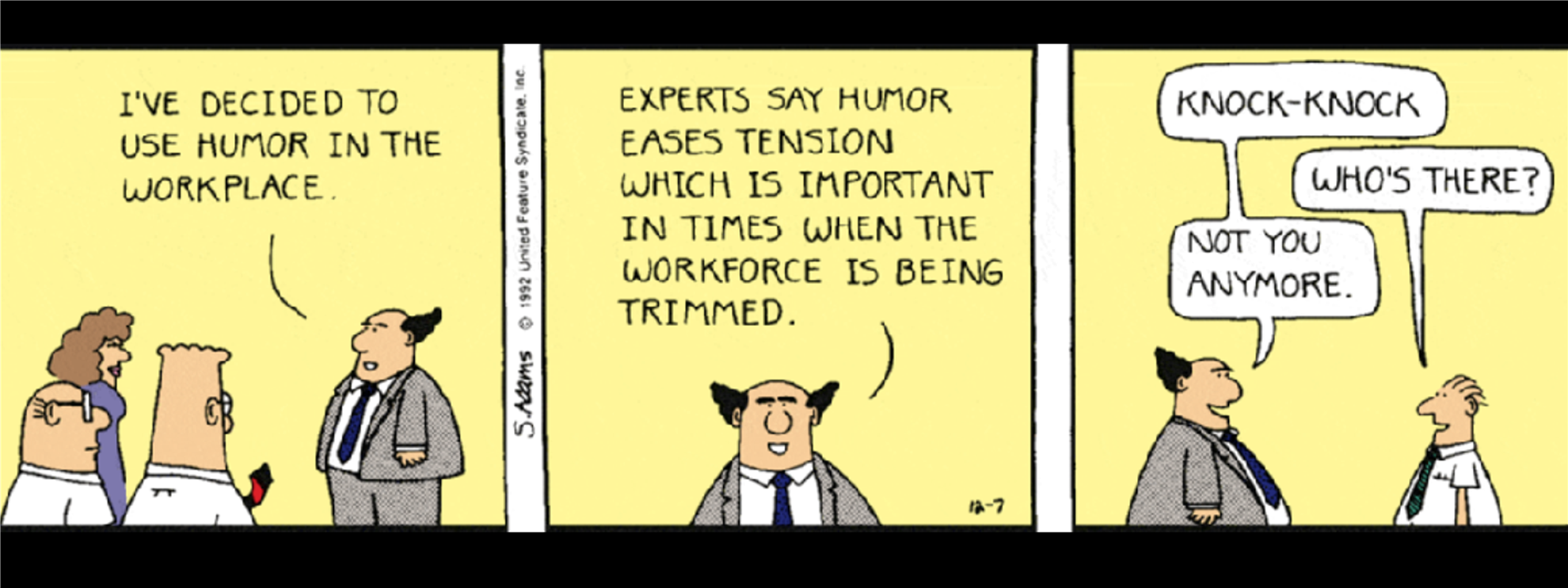
- Use humor. Neil watches a lot of stand-up comedy because he considers comedians to be engaging performers who hold their audiences in the palms of their hands. From watching stand-up, Neil has learned a lot about riffing on news headlines and pop culture, not to mention spotting things the rest of us usually miss. Using rhythm, tone, and powers of observation, comics are good communicators, and Neil thinks you can learn a lot from them, too—particularly when it comes to humor. “Humor matters,” Neil says. “If you can get people to laugh while they’re learning, you’ve got ’em. You can feed ’em everything. And that’s why humor is a fundamental part of how I communicate.”
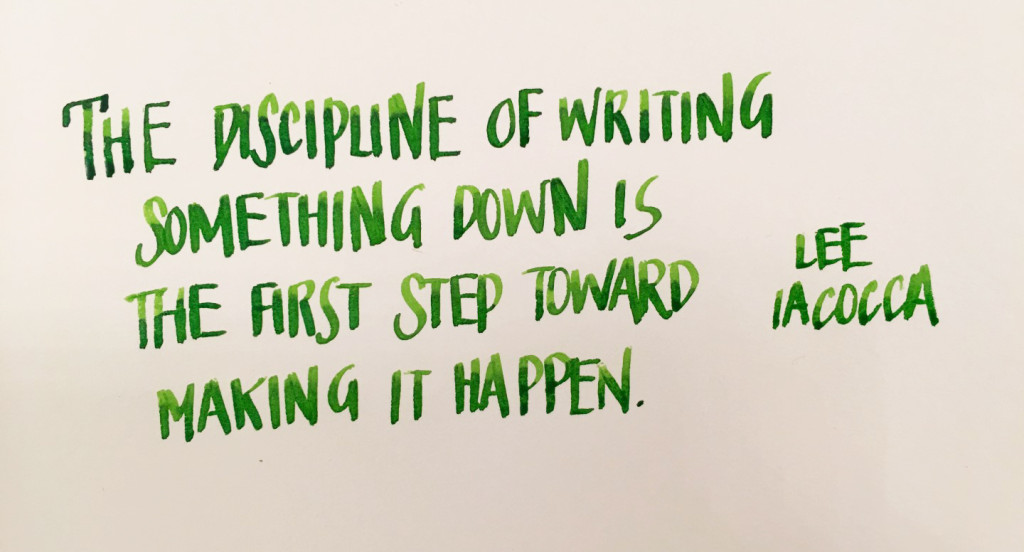 Write things down. Language and writing are hugely important to Neil because he uses his books and essays to work out ideas he’ll use elsewhere. “Ninety percent of the sentences that come out of my mouth [are ones that] I have previously written down,” he says. Writing allows you to organize and rework ideas, to play with structure in a way that spoken language doesn’t. If you’re unfamiliar with the practice of writing, start by creating a habit you can stick to. Consider keeping a daily journal in which you jot down your personal observations of the world; maybe it means starting a blog where you can practice the actual craft of writing (syntax, grammar, word choice). However you pursue the written word, keep at it—writing will only serve you well when speaking.
Write things down. Language and writing are hugely important to Neil because he uses his books and essays to work out ideas he’ll use elsewhere. “Ninety percent of the sentences that come out of my mouth [are ones that] I have previously written down,” he says. Writing allows you to organize and rework ideas, to play with structure in a way that spoken language doesn’t. If you’re unfamiliar with the practice of writing, start by creating a habit you can stick to. Consider keeping a daily journal in which you jot down your personal observations of the world; maybe it means starting a blog where you can practice the actual craft of writing (syntax, grammar, word choice). However you pursue the written word, keep at it—writing will only serve you well when speaking.
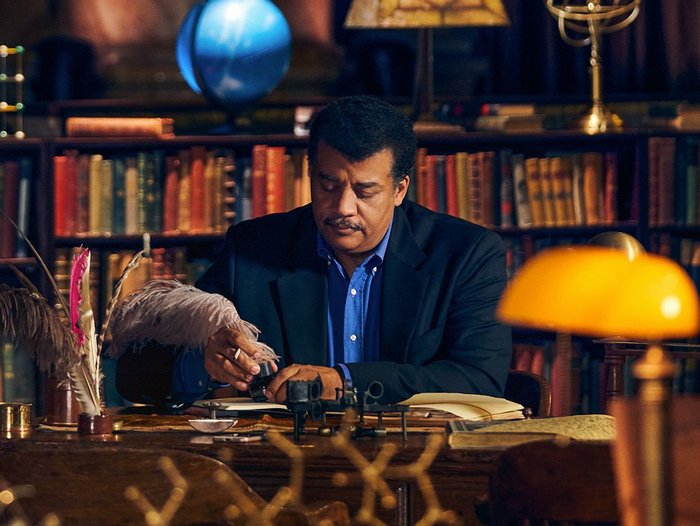 Neil deGrasse Tyson is the director of New York’s Hayden Planetarium and an astrophysicist at the American Museum of Natural History. Between his decade writing a column for Natural History magazine, bestselling books (including 2017’s Astrophysics for People in a Hurry), his podcast and TV show StarTalk, his many television and radio appearances, and his nearly 14 million Twitter followers, he’s become perhaps the world’s most recognizable living scientist. He’s bantered countless times with Stephen Colbert on late-night television, made a cameo on The Simpsons, and spoken with filmmaker Christopher Nolan about what happens when you approach a black hole.
Neil deGrasse Tyson is the director of New York’s Hayden Planetarium and an astrophysicist at the American Museum of Natural History. Between his decade writing a column for Natural History magazine, bestselling books (including 2017’s Astrophysics for People in a Hurry), his podcast and TV show StarTalk, his many television and radio appearances, and his nearly 14 million Twitter followers, he’s become perhaps the world’s most recognizable living scientist. He’s bantered countless times with Stephen Colbert on late-night television, made a cameo on The Simpsons, and spoken with filmmaker Christopher Nolan about what happens when you approach a black hole.